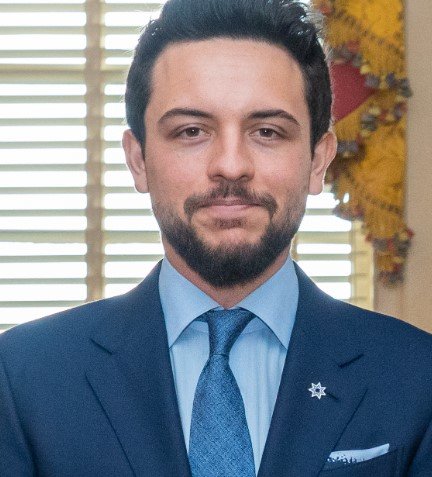Jordan will reintroduce mandatory military service, three decades after it was abolished, Crown Prince Hussein bin Abdullah announced during a speech in Irbid on Sunday. The move comes amid heightened national security concerns and growing regional instability, particularly due to the ongoing war in Gaza.
The Crown Prince emphasized that the return of national service aims to reinforce patriotic values in Jordan’s youth and prepare citizens to defend their country in times of need. The government and the military are expected to unveil full details of the new programme in a press conference within days.
A Return to Duty: What It Means for Jordanian Youth
Under the original conscription system, scrapped in 1991, all able-bodied men aged 18 to 40 were required to serve two years in the military. The revival of the programme is expected to affect similar age groups, though official details are still pending.
Prince Hussein underlined that military service is not just about combat readiness but also national unity and discipline. He stated that citizens who had gone through the earlier version of the draft still carry with them a deep sense of service and connection to the homeland.
Jordan’s youth, especially in provinces like Irbid, where unemployment and social discontent are growing, are seen as key targets for this programme. The initiative may also become a stepping stone for job training, skill development, and community engagement.

Growing Tensions with Israel a Driving Factor
Jordan’s reactivation of national service comes at a time when its diplomatic relations with Israel have deteriorated significantly. The Gaza conflict, now nearing its one-year mark, has placed pressure on Jordan to take a more assertive stance.
Jordan has already suspended joint development and infrastructure projects with Israel, though it still relies on significant water and natural gas imports from its neighbour.
Key developments pushing this shift include:
- Continued Israeli military operations in Gaza
- Public statements by Israeli Prime Minister Netanyahu supporting a “Greater Israel”
- Ongoing threats of displacement of Palestinians from the occupied territories
This regional instability has reignited national concerns about sovereignty and long-term security, both of which are central themes in Prince Hussein’s address.
National Identity and Service: A Strategic Investment
While many nations across the globe struggle with declining interest in military service, Jordan appears to be moving in the opposite direction. The reintroduction of national service is being positioned as a civic duty and a crucial tool for uniting the country.
According to defence analysts, such military training is not solely focused on battlefield preparedness but often includes:
- Physical fitness training
- Education in national history and values
- Technical and vocational skill development
- Disaster response capabilities
This multi-dimensional approach is expected to strengthen not only the defence infrastructure but also social cohesion at a time when national unity is more necessary than ever.
Strategic Alliances Remain, but Self-Reliance Grows
Despite the internal military revival, Jordan’s international alliances remain unchanged. Thousands of American troops are stationed in the country under a long-standing defence pact with Washington. Additionally, US economic and military aid continues to be critical to Jordan’s financial stability.
However, the emphasis on national self-reliance is clear. While the defence pact with the US and the peace treaty with Israel remain formally in place, Jordan is recalibrating its internal policy to rely more on its own citizens.
A short comparative table below outlines the key differences between the old and expected new conscription programmes:
| Feature | Pre-1991 Conscription | Expected 2025 Programme |
|---|---|---|
| Age Group | 18 to 40 | Likely similar (exact age TBD) |
| Duration | 2 years | Expected 12-18 months |
| Focus | Military training | Military + Skill training |
| Women Inclusion | No | Possible voluntary option |
| Post-service Opportunities | Limited | Planned job pathways and education |
Public Sentiment: Mixed Views and Rising Debate
The decision has already sparked wide-ranging reactions both online and offline. Some Jordanians, especially older generations, have voiced support, calling it a patriotic step back toward national discipline. Others, particularly among younger citizens, appear divided—some welcome the stability and opportunities for growth, while others worry about an enforced reshape of their life plans.
Key concerns being discussed on social media and forums include:
- Impact on education and career planning
- Gender-specific enforcement
- Transparency and fairness in the selection process
- Concerns over militarisation of society
The Crown Prince addressed these concerns subtly, noting that the government is working with national and international partners to ensure that the programme is efficient, inclusive, and aligned with social development goals.
What Happens Next?
A government and military press conference is expected later this week, where formal guidelines, timelines, and eligibility criteria will be announced. Early signs indicate that the programme will roll out in phases and may initially focus on newly graduated male youth.
If implemented successfully, Jordan’s reactivation of military service could mark a significant turn in Middle Eastern state policy responses to both internal economic pressures and external geopolitical threats.
As the region continues to face uncertainty, this bold move may well become a model adopted by other Arab nations seeking to bridge civic gaps and prepare for the challenges ahead.
Have thoughts on the revival of national service in Jordan? Share this article and leave a comment with your opinion.
